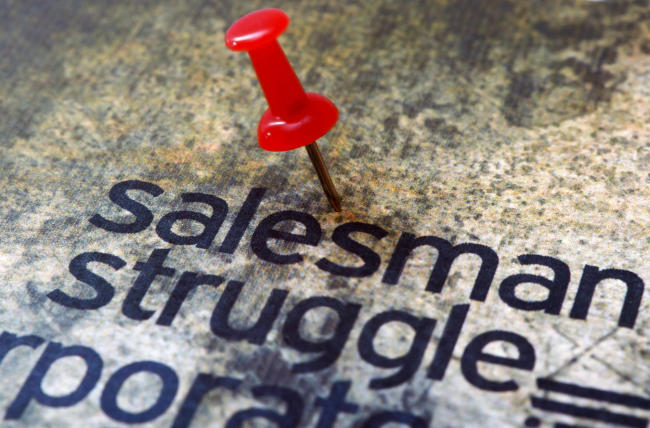
Think about the last time you felt pressure from a salesperson. It could have been when you were shopping for a mattress a month ago or the last time you bought a car. Or maybe it was that random cold call you received from a telemarketer in the middle of the day last week at work.
I’m guessing if you felt pressure, it wasn’t a “good” feeling at all. Instead, I expect you wanted to get out of the room (or off the phone) as quickly as possible.
Did you feel like the salesperson was going into “hard sell” mode at some point? Often times, hard sell and pressure are synonymous. Here’s how Merriam-Webster defines it: “aggressive high-pressure salesmanship.”
In Sandler, hard sell isn’t even in our vocabulary.
If you’re at a point in a sales call where you have to kick into a hard sell, your selling system has failed, and you’ve just become desperate. In fact, “hard sell” typically means “no sale!”
Let’s break down WHY pressure entered the sales conversation:
1. Was it because you heard an objection you weren’t prepared for?
2. Was it because you forgot to uncover the decision-making process, and now you feel the only way to “close” the deal is to put on the pressure?
3. Was it because there was no clear Up Front Contract, so you tried to make up for it by bringing in the hard sell?
4. Did you realize the prospect was wavering, so you decided to add some pressure to make sure you still got the sale?
Each of these made-up scenarios – and many other real-life situations – is based on YOU and not your prospect. Remember, prospects buy for THEIR reasons, not yours. If you’re in high-pressure, hard sell mode, it means you’re trying to force the sale.
Sandler Rule #26 says: People Buy in Spite of the Hard Sell, Not Because of It.
If a prospect is going to buy from you, it’s because he has pain and you have the cure for that pain. If you have the cure, it shouldn’t take high pressure or hard selling. When you ask the right questions and uncover your prospect’s pain, he’ll lead you right to what he needs. No hard sell needed.
When you genuinely care about the prospect’s problem, when you truly want to help him resolve his pain, the hard sell is unnecessary. If you care about the prospect, you’ll stop trying to “convince” him of YOUR reasons why he should buy, and instead you’ll help him discover why he’s having problems and how you/your product/your service can address those problems.
Hard sell means you’re selling for your reasons and not your prospect’s reasons.
You didn’t like it when you felt the pressure of the hard sell; your prospects don't either.
Interested in learning more? Please give us a call at 330-929-9449 or send an email to therubygroup@sandler.com.
Contacteer ons vandaag!
Vul het formulier hieronder in.


